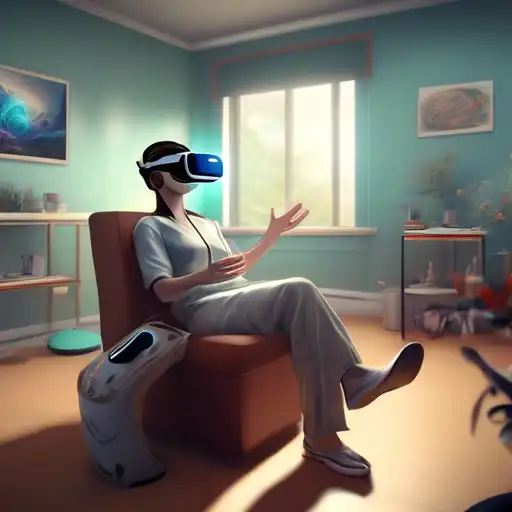The Transformative Role of Virtual Reality in Modern Therapy
Virtual Reality (VR) technology has transcended its initial entertainment purposes, paving the way for groundbreaking applications in various fields, including therapy. This immersive technology is now being harnessed to treat a wide range of psychological and physical conditions, offering patients and therapists innovative tools for healing and rehabilitation.
Understanding VR Therapy
VR therapy involves the use of virtual reality simulations to create controlled environments where patients can confront and work through their issues under the guidance of a therapist. This method has shown remarkable efficacy in treating conditions such as PTSD, anxiety disorders, and phobias, by allowing patients to face their fears in a safe, manageable setting.
Applications of VR in Therapy
The applications of VR in therapy are vast and varied. Below are some of the key areas where VR is making a significant impact:
- Mental Health: VR is used to simulate scenarios that help patients with anxiety, depression, and PTSD to confront and overcome their triggers in a controlled environment.
- Physical Rehabilitation: Patients recovering from strokes or injuries use VR to regain motor skills through engaging and interactive exercises.
- Pain Management: VR distracts patients from acute or chronic pain by immersing them in calming or engaging virtual worlds, reducing the need for medication.
- Social Skills Training: Individuals with autism or social anxiety benefit from VR simulations that teach and reinforce social interactions in a low-pressure setting.
Benefits of VR Therapy
VR therapy offers numerous advantages over traditional methods, including:
- Enhanced engagement and motivation for patients.
- The ability to simulate real-life scenarios that would be difficult or impossible to recreate in a traditional therapy setting.
- Customizable environments that can be tailored to the specific needs and progress of each patient.
- Reduced costs and increased accessibility for patients who may not have easy access to certain types of therapy.
Challenges and Considerations
Despite its potential, VR therapy is not without its challenges. Issues such as the high cost of equipment, the need for specialized training for therapists, and the risk of cybersickness in some patients must be addressed to maximize the technology's benefits.
The Future of VR in Therapy
As VR technology continues to evolve, its applications in therapy are expected to expand, offering even more innovative solutions for mental and physical health challenges. With ongoing research and development, VR has the potential to revolutionize the field of therapy, making treatments more effective, accessible, and engaging for patients worldwide.
For those interested in exploring the intersection of technology and mental health further, consider reading about the impact of technology on mental health or innovative therapies for anxiety and depression.
